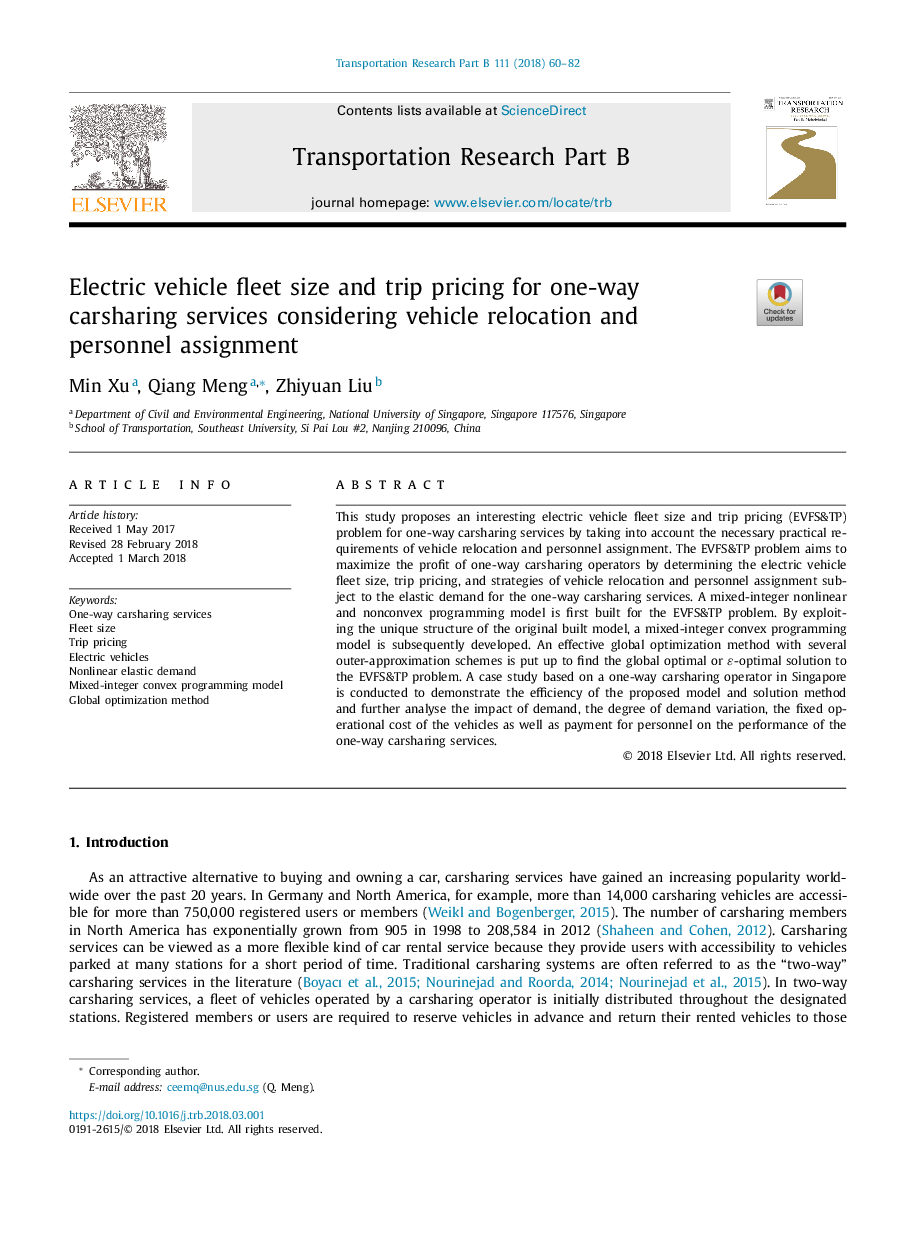ترجمه فارسی عنوان مقاله
اندازه ناوگان وسیله نقلیه الکتریکی و قیمت سفر برای خدمات خودرویی یک طرفه با توجه به نقل مکان و جایگزینی پرسنل
عنوان انگلیسی
Electric vehicle fleet size and trip pricing for one-way carsharing services considering vehicle relocation and personnel assignment
| کد مقاله | سال انتشار | تعداد صفحات مقاله انگلیسی |
|---|---|---|
| 143018 | 2018 | 23 صفحه PDF |
منبع

Publisher : Elsevier - Science Direct (الزویر - ساینس دایرکت)
Journal : Transportation Research Part B: Methodological, Volume 111, May 2018, Pages 60-82
ترجمه کلمات کلیدی
خدمات صحیح یک طرفه، اندازه ناوگان، قیمت گذاری سفر، وسایل نقلیه الکتریکی، تقاضای الاستیک غیرخطی، مدل برنامه ریزی محدب یکپارچه عددی، روش بهینه سازی جهانی،
کلمات کلیدی انگلیسی
One-way carsharing services; Fleet size; Trip pricing; Electric vehicles; Nonlinear elastic demand; Mixed-integer convex programming model; Global optimization method;

